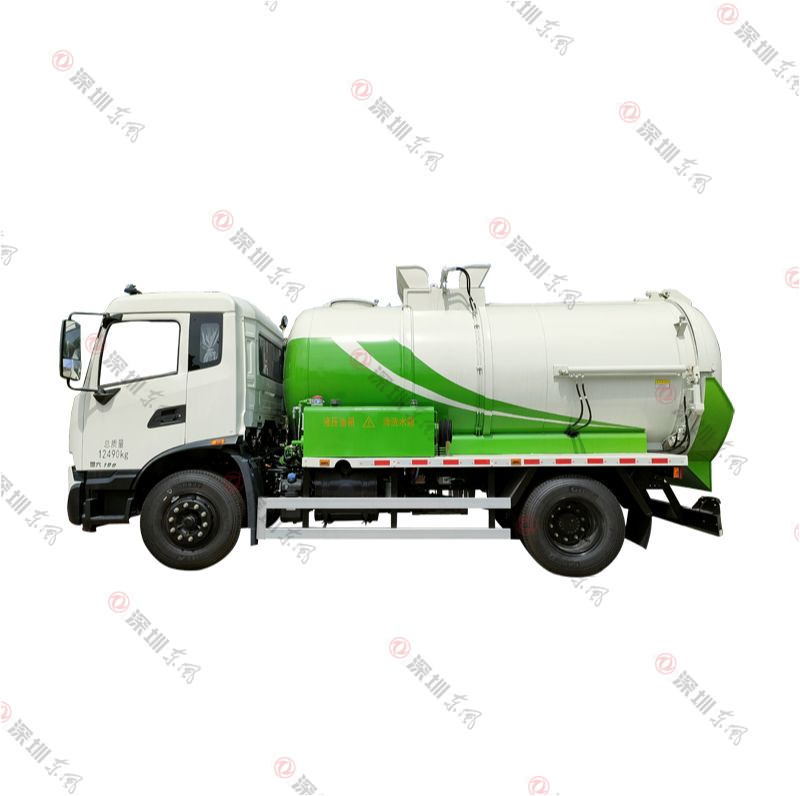Food waste has become one of the most pressing urban challenges of the 21st century. Globally, millions of tons of edible food are discarded every year, contributing to greenhouse gas emissions, wasted resources, and higher municipal waste management costs. To address this growing issue, kitchen food waste collection vehicles have emerged as an innovative and essential solution for modern urban sanitation systems.
Urban areas, restaurants, hotels, and commercial kitchens generate massive amounts of food waste daily. Traditional waste collection methods often mix food waste with general refuse, making it difficult to recycle or compost efficiently. This inefficiency leads to:
Increased landfill usage
Higher methane emissions from decomposing food
Loss of valuable nutrients and energy resources
As a result, municipalities and private waste management companies are turning to specialized food waste collection vehicles to tackle the problem at its source.

Kitchen food waste collection vehicles are specifically designed to handle organic waste safely and efficiently. Key features include:
Separate compartments for wet waste: Prevents contamination with general waste.
Compaction systems: Reduce the volume of food waste, allowing more material to be transported per trip.
Sealed and hygienic storage: Minimizes odors and prevents pest infestations.
Temperature-controlled options: Keep perishable waste fresh until disposal or composting.
These features make food waste collection trucks an ideal solution for hotels, restaurants, catering services, and residential complexes.
Efficient food waste management through specialized vehicles directly contributes to environmental sustainability:
Reduced greenhouse gas emissions: Proper collection and processing prevent uncontrolled decomposition in landfills.
Enhanced composting and biogas production: Organic waste can be converted into valuable resources such as compost or energy.
Improved urban hygiene: Minimizes smells, pest problems, and spillages in streets and alleys.
By integrating kitchen food waste collection vehicles into urban sanitation systems, cities can move closer to achieving zero-waste goals.
Investing in food waste collection vehicles is not only environmentally responsible but also economically smart. Benefits include:
Lower operational costs: Compaction and volume reduction reduce fuel and labor costs.
Optimized collection routes: Advanced trucks can integrate GPS tracking and route optimization software.
Revenue generation: Recovered organic waste can be sold as compost, animal feed, or bioenergy feedstock.
Cities and commercial operators can save money while contributing to a more sustainable waste management ecosystem.
Modern food waste collection vehicles are equipped with cutting-edge technology to improve efficiency and reliability:
IoT sensors: Monitor fill levels and optimize collection schedules.
Automated lifting systems: Facilitate the emptying of bins without manual labor.
Data analytics integration: Track food waste generation patterns to inform waste reduction strategies.
The adoption of smart kitchen food waste trucks helps municipalities and businesses reduce costs while enhancing service quality.
From high-rise residential complexes to bustling commercial districts, food waste collection vehicles are designed to operate in varied urban settings:
Narrow streets: Compact vehicles navigate tight alleys efficiently.
High-density neighborhoods: High-capacity trucks reduce collection frequency.
Commercial kitchens: Vehicles can handle large volumes of organic waste while maintaining hygiene standards.
This flexibility ensures that cities of all sizes can implement efficient and scalable food waste management systems.
Food waste is not just an environmental concern—it’s a social and economic challenge. By adopting kitchen food waste collection vehicles, cities can:
Reduce landfill pressure
Lower greenhouse gas emissions
Promote composting and renewable energy projects
Encourage sustainable consumption habits among residents
Ultimately, these vehicles play a pivotal role in transforming urban waste management practices and mitigating the food waste crisis.
The demand for kitchen food waste collection vehicles is growing rapidly as cities, restaurants, and commercial operators recognize their environmental, economic, and operational benefits. These vehicles offer a practical, hygienic, and sustainable solution to the ever-increasing problem of food waste. By integrating specialized food waste trucks into urban sanitation systems, cities can take a significant step toward a cleaner, greener, and more sustainable future.